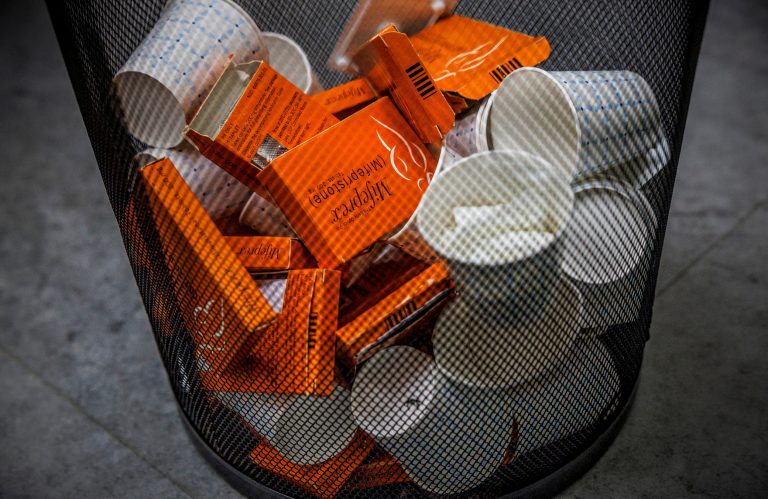In what looks to be a legal slugfest, anti-abortion groups have challenged the U.S. Food and Drug Administration over the continued sale of the drug responsible for more than half the artificially terminated pregnancies nationwide.
Last week, the U.S. District Court at Amarillo, Texas, formed the stage where judge Matthew Kacsmaryk may decide to retract the sales permit for the abortion pill Mifepristone, which has been on the market for over 22 years. The decision may have widespread consequences even in the states where abortion is currently legal.
The case has all the ingredients to become the most extensive legal hornet’s nest on the matter since the U.S. Supreme Court overturned the 1973 Roe v. Wade ruling last year that established federal abortion rights.
Remarkably, the bet the pro-life groups entered the arena with was not based on the rejection of the practice of abortion itself but on safety concerns over the medicine and sloppy testing procedures before launching the substance on the market in 2000.
Mifepristone is part of a two-drug regimen with Misoprostol, accounting for more than half of abortions in the U.S. The plaintiffs said the alleged unsafety of the abortion inducer goes especially for girls under 18.
Success
You are now signed up for our newsletter
Success
Check your email to complete sign up
READ MORE
- Underground Abortion Pill Industry Booming Following Overturning of Roe
- Attacks by the Far-Left Pro-Abortion Group Jane’s Revenge on the Rise
- Leaked Pfizer Executive Emails Confirm Aborted Fetal Tissue Used in COVID Vaccine Testing
- Ruling Clears Louisiana to Enforce Near-Total Abortion Ban
Whatever the judgment of the District Court may be, it will be the first time the judiciary will have such a far-reaching impact on the agency’s regulatory process in the future.
The FDA didn’t go into details about the litigation or its next steps. According to Reuters, based on talks with nine experts, including six who signed onto a brief filed in the Texas case, the FDA still has some tools to mitigate the impact in case of a court-ordered embargo on the baby-killer substance.
Nevertheless, the sources the press agency cited did underline that any of those instruments could form a possible legal and political risk for both the agency and manufacturer and suppliers of the pharmaceutic. However, any ruling in the case is likely to be appealed.
Typically, in assessing any medicament endorsement revocation, the bureau would enter a lengthy tract of first holding an informal hearing followed by extensive documentation preparation and assembling various consultation committees.
Possible outcomes
If judge Kacsmaryk dares to overrule the Food and Drug Administration’s decision and demand it to reassess its green light on the dope’s approval and enter a protracted process during which the pill would not be medically or legally approved yet still fully available in pharmacies or online.
Even if higher courts uphold a decision against the FDA, the agency could help prevent Mifepristone from being immediately withdrawn from the market, the scholars quoted by Reuters alleged. Continued access to the pill would depend on how much legal risk manufacturers and sellers were willing to assume.
“If you have the Supreme Court saying that this is an unsafe drug, at that point, the legal risks go up enormously, no matter what the FDA does,” said Greer Donley, an associate professor at the University of Pittsburgh Law School.
Legal tug-of-war
A prohibition would typically be provoked by studies executed after the cure was approved and launched on the market, said Harvard Law professor I. Glenn Cohen.
In such a scenario, the abortion agent producers would likely challenge the boycott legally, upon which the FDA might want to keep the Mifepristone available, said Greer Donley, an associate professor at the University of Pittsburgh Law School.
If the judge takes a more strict stance on the matter, explicitly summons an injunction on the remedy, and rescinds the license, the FDA might still pretend that it never happened and still not enforce the restriction.
That could mean the agency could forgo taking steps to avert extended Mifepristone sales. Or, the FDA could double down on and publicly state it would refrain from taking such action.
If that were the case, the FDA could also be prosecuted by anti-abortion parties or officials for not complying with the ruling, as could Mifepristone makers and sellers for continuing to make it available.
Reuters contributed to this report
















